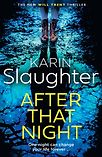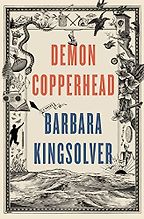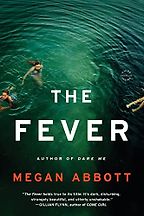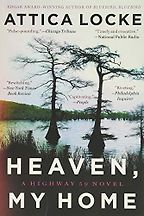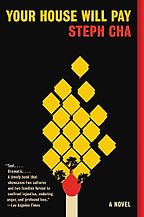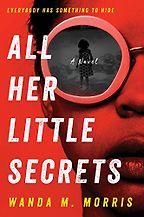Can you start by telling me about crime fiction as a genre—why you read it, why you write it? Is it because you enjoy it or is it partly because you’re on a mission?
‘On a mission’ sounds a bit like The Avengers or something, so I don’t know about that. But good crime fiction is always written about society, whether it’s Agatha Christie writing about wealthy people who deserve to be murdered, or Raymond Chandler. One of the first—if not the first—American crime novels was written by a woman named Metta Fuller Victor, but of course, because she was a woman, no one ever talks about her. She wrote a zillion books and was her own publisher at some point she was so successful. She had nine children, and she was a Mormon. She was fascinating. She really incorporated her religion into a story called The Dead Letter—but not in a ‘this is my religion’ way, it was more the social values. It’s considered what we call a ‘domestic mystery,’ which is a mystery written by a woman (if a man writes it, it’s just a mystery).
My favorite crime novels—even Nancy Drew or the Hardy Boys—had a message behind them. I know there are British versions of those stories too, with different characters. Some of them are cautionary tales. My grandmother loved True Detective magazine, which was basically snuff porn. It was horrific, but the end of the story was, ‘She should have listened to her father.’ There was always a social message, and that resonated with me. Obviously, as a kid, I didn’t see it. But later, I’m like, ‘Wow! Why do I know so much about Native Americans?’ It’s because I read these stories. ‘Why do I know what life is like in England and other places I’d never been at that point in my life?’ It’s because there were messages in those stories.
Lee Child, Michael Connelly, Lisa Gardner: we’re all writing about society. We’re holding up a mirror and saying, ‘This is what’s going on.’ Sometimes we’re predictive about what’s going to happen. One of my novels is about a white supremacist group overrunning the State Capitol. This was four years before the January 6 insurrection. I don’t want to make it seem like I’m the only one who saw that coming because I was talking to police officers, and they were really worried about that happening. It was out there.
I read it a lot. I read a lot of nonfiction, too, just because history tells us where we’re going and not just where we’ve been. Crime novels do that as well.
In your novels, and especially in the latest one, After That Night, a lot of the focus is on violence against women. That’s a particular aspect of society that you want to draw attention to, is that right?
Yes, and there’s been a bit of a backlash from women, saying women shouldn’t write about these things. I don’t think anybody should tell you what to write about or not write about: that’s censorship in its own form. If that’s not the type of book you want to read, there are many other great novelists whose stories you can enjoy.
But, for me, it feels very personal because when I was growing up, my grandmother was being violently abused by my grandfather. We never talked about it. She would have a black eye or a split lip or a broken bone. I remember, as a kid, sitting at the supper table, and my uncles would tease her about being clumsy. I had a lightbulb moment with my sister. I said, ‘I don’t think she’s clumsy. I think it’s our grandfather.’ My sister said, ‘We don’t talk about that.’ So we didn’t. I didn’t. As I got older and became a woman in the world, experiencing various aggressions and harassment, it occurred to me that our silence only protected him.
I want to write about it. In the United States alone it has happened to almost a quarter of a million women every single year—and that’s over the age of eighteen and who reported it. The women who didn’t report it and the vast number of child sexual abuse victims aren’t in that statistic. When you don’t talk about it, it doesn’t stop. It gives perpetrators and other people the ability to say, ‘It’s not that bad’ or ‘She changed her mind’ or ‘What was she doing?’
“For me, it feels very personal”
We put things on sexual assault that we don’t put on other crimes. If your house was burgled, I would not say to you, ‘Why did you have nice things in your house?’ or ‘Why didn’t you have a better lock on your door?’ I would say, ‘I’m so sorry.’ Or if someone is murdered, the police don’t say to the family, ‘A murder investigation is really hard, maybe you don’t want to do this.’ We put all these expectations on women who are victims of these crimes. Even police officers. There has been a rash of women who have reported rape and been arrested by the cops for filing false police reports. In many instances, it’s come to light these women were raped, but these cops just approached it as ‘All women are liars.’
That’s why I think it’s important to talk about it. And not just talk about the crime, but what it does to everyone in the circle. Specifically with this book, After That Night, you see how it completely changed the course of Sara’s life. That’s what it does. It creates so many ripples throughout her community. Everybody she comes in contact with has experienced a form of trauma on some level because of this one violent act. That, I think, is the point of crime fiction. Good crime fiction talks about how violence affects society, how it changes people, what it can do to them. That’s why it’s important. I don’t think it’s a mission per se; I’m just speaking for people who don’t normally have a voice.
And to place After That Night in the context of your writing, it’s the eleventh book in the Will Trent series is that right? But it focuses on Sara Linton, who appeared in your first crime novel, Blindsighted, back in 2001. When did Sara become part of the Will Trent books?
Sara came in after the second book. I didn’t know there was going to be a pop quiz!
I know from your website you’d prefer people to read the series in order, starting at the beginning, but are they written so that you can join at any point?
Yes. Hopefully, they’re like potato chips. You have one, and then you think, ‘I want to get more of this.’
Are you still enjoying writing?
I love it, I really do. It’s hard. It’s work. I could make it so much easier on myself if I did the same thing over and over again, but I want everything to be different and new. Particularly with this book, having written about Sara for so long, it opens up a new part of her personality. I very deliberately wanted, as I get older, to have my characters grow along with me and change because—let’s be honest—they see some really horrible shit. In the next book, they can’t be, ‘Oh that’s fine we never even dealt with that serial killer.’ In their characters they have a memory of the things that have come before, and it’s changed them in a lot of ways.
Sara, in the first book, was very black and white: This is right; this is wrong. Now, in this book, she’s like, ‘There’s a lot of grey.’ That reflects me, getting older and realizing things are more complicated. When you’re younger, you’re not very forgiving of other people. You think their mistakes are catastrophic; yours you forgive yourself on the down low. But hopefully, as you get older and more experienced, you think, ‘Maybe I should give this person the benefit of the doubt.’ That’s a reflection of me, unfortunately, getting older.
I wrote this book for the time period we’re in, particularly in America, where women have lost their bodily autonomy and reproductive rights in many states. There’s an appalling lack of understanding of how basic female anatomy works, and reproductive anatomy, and gestation. It really is insane how stupid some people are. And you think, ‘Fuck, you can Google it. Why do you think the uterus is directly attached to the liver? Have you ever seen a diagram of the body? How do you not know where urine comes from?’
“I’m just speaking for people who don’t normally have a voice”
I’m really conscious that this was a good time to tell Sara’s story from her perspective. From the very beginning, I made it clear that she is a survivor of sexual assault. I wanted to talk about the nuances of that, and how we perceive people. The trick with Sara is that she’s had some distance from it. I couldn’t make her angry about it. No one wants to listen to an angry woman, as my grandmother used to say (she was very angry herself, so she knew). I had to get the right tone for Sara so that I could talk about what happened and the overwhelming guilt that a lot of survivors have. They think, ‘Look at what my family went through!’ As bad as it was for them, they feel a lot of guilt that people in their lives went through it.
It seems self-reverential to say that I like something in my book, but I like the scene in which Sarah is talking to another survivor, and you can feel her relax because she’s thinking, ‘I don’t have to worry about managing her feelings. We can have this dark discussion about what it’s like to be a survivor.’ It really is the worst club to be in, but talking about it can be restorative. It can take away some of the shame and the guilt. If that’s what you choose. Again, I would never tell someone, ‘You should behave this way, you should do that.’
With Weinstein, with Trump convicted of sexual assault in a civil court and so many accusations against him for this kind of behaviour, it’s really galling. I thought I could really talk about that through Sarah. It was cathartic to talk about what’s going on. Women tend to talk about the things that we endure in a matter-of-fact way. You’re never going to say to another woman, ‘Oh my God, I got flashed on the subway!’ And they’re not going to say, ‘I got flashed when I was twelve!’ It’s just so common in our lives. I thought, ‘Let me take it from that perspective, talk about the things that women don’t really talk about among themselves, and they certainly don’t talk about with a lot of men.’ Which is why men say it’s great to be a woman. ‘Well, actually, somebody tried to grab my ass on the street yesterday.’ We don’t talk about it because we think we just have to endure it.
Let’s talk about the five books you’ve chosen for us on the theme of crime fiction and social justice. Are they all crime fiction would you say?
I would. With the Barbara Kingsolver, people might say it’s a bit of a stretch, but the best novels that talk about crime are hybrids. She would say herself she’s writing about social justice. The Poisonwood Bible is about social justice. Demon Copperhead has been called the Appalachian David Copperfield. It reminds me of Shuggie Bain, actually, with a little of Huck Finn. And Odysseus, because this character goes on these odysseys and keeps meeting interesting people.
I’ve been to parts of Appalachia; I do a lot of library outreach. It’s dirt-poor. If you were transported there from New York or Atlanta, you would think you were in some sort of alternate universe, because the poverty is so extreme. The neglect, the drugs, and the opioid crisis—all of those are crimes. The kid in Demon Copperhead is in such a horrible situation that he’s taken away from his family.
It’s similar to what I was talking about with Sara. It’s his attitude that makes it so engaging. The book is dark, but it’s not overwhelmingly dark and horrible because he has such a great sense of humor. That’s why I mentioned Huck Finn, because that’s the Huck Finn way (not to mention that he ends up on a raft on the river). It really is that quintessential American story of ‘I’m not going to feel sorry for myself; I’m going to make fun of this.’ It’s a very Southern thing. When I’m in England, people say, ‘You’ve got a very English sense of humor.’ I always laugh and say, ‘Where do you think we came from? Georgia?’
The kid’s attitude is: ‘Yeah, no socks, no clothes, I haven’t eaten in 24 hours, but that’s just today. I’m just going to keep going.’ He’s like this wayfaring orphan who has no control over anything.
He is also Melungeon, which is a mix of African American indentured or freed enslaved people, European, and Native American. It’s as if Huck Finn was mixed race, which is really an interesting way to approach it. England has its class systems, and we have our ethnic systems (though let’s be honest, England also has its ethnic systems). If anyone ever asks me, ‘What’s going on with America? Why did this happen?’ It’s either going to be racism or money.
My grandmother also had a lot of animosity toward redheads. He’s a redhead—that’s where ‘Copperhead’ comes from. As I was reading it, I remembered how when she saw a redhead she would spit on her fingers and say ‘he’s from the devil’—particularly a left-handed redhead person. She would have been terrified in Scotland.
The part of the story that I really related to on a personal level is that he likes to draw. He draws all these superheroes vanquishing villains, and it’s a metaphor for him overcoming people and destroying villains in his life. I remember doing that as a kid with my writing. I would think, ‘My sisters are such assholes, I’m going to write a story where they’re being mutilated.’ That kind of thing. I really related to that aspect of his character.
The wonderful thing about America and the terrible thing about America is that it’s all different kinds of countries all in one. You probably know about Hillbilly Elegy. Everybody loved it when it came out but my take on it was, ‘Jesus Christ! Your ancestors—some of them almost died getting here. The mill closed down, and now you’re just giving up? If they could see you now!’ The way Americans hold onto Ireland. More Americans identify as Irish than people born in Ireland. It’s this romanticization of what was a really hard time. We tend to do that. These communities have been devastated by opioids, and that’s where the money comes in. It’s always going to boil down to money or racism. That’s why I love this novel.
It’s quite long, around 560 pages, but very readable, would you say?
It moves very quickly. I always think what makes a mystery or thriller is the pacing, that’s what gives it that thrilling bent. It made me think about Cold Mountain because that’s a sort of odyssey as well, he meets all these wayfaring strangers. But, after a while, you think, ‘Who else is he going to meet now? This needs a car chase.’
Let’s move on to your next book, The Fever by Megan Abbott. This is set in New York State, and I saw it described somewhere as ‘high school noir.’
It’s funny that I picked my first two books about kids because I really don’t like them. I think other people’s kids are fine, but they’re not scintillating conversationalists. Particularly not babies. They can’t even hold their heads up. But I love this story, firstly because Megan Abbott is a phenomenal writer. I really feel that she doesn’t get the credit she’s due. I love her because she’s always hustling: she’s doing TV, she’s doing books, she’s doing all these different fascinating, interesting things. If she was a man, she would be the number one novelist in the entire world.
This book is set in a high school, where there is a fever spreading among the girls. What Megan is so good at, particularly in this book, is that it’s so claustrophobic. You could be reading about an office complex instead of a high school. People don’t change after high school. They’re always the same.
Part of it is told from the parents’ point of view. It’s so awful being a teenager. No wonder these mothers drink! It’s just so stressful, particularly for women, seeing girls go through the same shit you went through, with this wash of hormones. It made me think of the Salem witch trials. I don’t want to call these young women hysterical or all these other stereotypical things because guys can do crazy shit too. But women are so much more internalized about their anxiety at that age. When they strike out, it seems to be more surgical. Whereas when guys strike out—in America, they use AR-15s—no one calls them hysterical, they’re troubled young men.
Five Books interviews are expensive to produce. If you're enjoying this interview, please support us by donating a small amount.
It’s like a scalpel. Or like a prison scene where one prisoner shivs the other. Megan is so good at building that tension. There’s a mystery, but it’s not a conventional mystery—there’s no murder. It’s more like Flannery O’Connor’s mystery of character: What are they going to do? What’s going to happen next? As a fellow author, to be able to build suspense based on that is amazing.
Again, she is talking about something very prescient. We have all these kids coming out of a pandemic, and their brains have been messed with. Everybody keeps saying, ‘The kids will be fine. Kids adapt.’ No, actually, this is very traumatizing. They don’t adapt; they learn to live with it. There’s a very big difference between the two. They’re not incorporating it and moving on. The memory of it is going to be in their bodies forever. We have scientific data about how childhood trauma leads to heart disease later in life, and that it can lead to depression and make you more susceptible to addiction and all these other things.
I think we’re seeing a lot of what Megan talked about in The Fever, which was published in 2014. Girls are acting out in the same ways. You hear about suicide pacts, and all the crazy things they’re doing on TikTok—like eating detergent—and you think, ‘Of course they’re doing that, because that’s what kids do.’
The next book you’ve chosen is Heaven, My Home by Attica Locke. This is more of a conventional crime novel. Can you tell us what you like about this one?
It’s the second book in the series, but you don’t have to read the first one. Like Megan Abbott, Locke is a fantastic writer. In the UK, did you have The Lone Ranger—the kids’ cartoon? Rangers are very storied in American history. They always wear white hats and cowboy boots. In law enforcement, they’re the smart ones. As with most police systems in America, the Texas Rangers started with racism. They were meant to fight the native people and force them off their land into Mexico. Then they were dissolved because the Civil War happened, and the federal government took over border patrol. Then the Rangers were reestablished as a state police, like the Georgia Bureau of Investigation.
The fact that Locke has a Black Ranger in this book is really daring. They exist, but Rangers are predominantly white. It breaks with history. When I read about the first novel, I thought, ‘Wow, that is really interesting.’
I like this novel because he gets called to a case. There’s a missing boy, and the family are a bunch of white supremacists. They live in a town that makes its money from tourism by being an antebellum town. They romanticize what’s called ‘the Lost Cause’ narrative, which is, ‘Slavery wasn’t that bad. My ancestors didn’t own slaves.’ That kind of shit. It reminds me a lot of the town I grew up in. In school I was a really horrible student. I seemed to lack focus. I didn’t tell people I was writing. My stepmother really fixated on a girl who was a couple of classes above me who made money by being a Scarlett O’Hara impersonator. She would show up at the Piggly Wiggly, dressed as Scarlett O’Hara and passing out sausage for free. This was perfectly normal. She was in a car commercial. It was very lucrative. She paid her own way through college—you’ve got to give her props for that. I remember my stepmother saying to me, ‘She’s really doing well for herself.’ I said, ‘I look nothing like Scarlett O’Hara, and I’m not going to wear an antebellum dress.’ But there was a lot of pressure for me to do that. When I read this novel, I thought, ‘I know that town. I know exactly everything to do with it.’ I’m from Georgia, like Margaret Mitchell, who arguably codified the Lost Cause.
In the book, you see it through the eyes of Darren Matthews, the Ranger. He just wants to do his job. He wants to find the kid. He wants to take care of this community, even though they hate him and they’re nasty to him. He has his own trouble going on in his home life because of the last case he worked. It’s a very rich story, from a perspective I’ve never read before. That’s what I like about it. Texas Rangers are these great, wonderful people, and here’s this guy who is everything a Ranger embodies, and people hate him because of the color of his skin.
Plus it’s very pacy. If I was going to teach a class on writing thrillers—which I wouldn’t, I’d be a horrible teacher—I would use Attica Locke and Mo Hayder. She could plot more tightly than any other author I’ve ever met. It was just so fucking precise. She was amazing.
Next up is Your House Will Pay by Steph Cha. Tell me about this one.
Again, it’s like ‘Wow! I’ve read Raymond Chandler and Michael Connelly. I’ve read so many versions of Los Angeles but not this version.’ It gives me a sadness. We’re learning so many stories that were never told because the dominant lens was a white male lens, where everybody knew their place and the men were always the heroes.
Steph Cha is an amazing writer. One of the things I like about this book is that a lot of immigrant stories in America are about how ‘he was beaten to death and he couldn’t speak English, and his life was horrible.’ That’s not so much the experience of second-, third- or fourth-generation immigrants. She’s talking about middle-class Korean Americans, which she is very familiar with, and African Americans in LA.
It’s a uniquely American experience. One of these characters’ parents have made sacrifices, and now they’re working in a pharmacy and doing well. They’re middle class. It’s the American dream. All of that is pulled out from under them because of a racist act. It’s so prescient that she’s writing about this. She could have been writing about the racial explosion that happened before she wrote this book because it keeps happening. The book is asking, ‘Why do we keep doing this shit over and over again?’
It’s also a reminder that as much progress as we make, there’s always going to be a minority opinion that tries to pull us back. Right now, Trump has really hard support of 20 per cent of Americans. That’s too much. We’re under the tyranny of the minority: this small group of really awful people is directing the conversation. This is partly because our press is saying, ‘There are two sides to everything.’ If you go back, you’ll see that they did the same thing with Hitler before the war: ‘He’s a nice guy after all.’
Los Angeles is home to Hollywood, but it’s also one of the most racially segregated cities I’ve ever been in. It’s quite startling. When I went to Los Angeles for the first time, people would say, ‘How can you live in the South? It’s so racist.’ And I would say, ‘We see what you’re doing here. Los Angeles is not even an American word. Who named that?’
Again, it’s using crime as a fulcrum to pry the scab off the human condition. Steph Cha is an amazing world-builder. In the United States, it’s still a predominantly white audience, statistically. She’s got to explain it to everybody while not insulting people who already know. To be able to juggle that, where neither party feels they are being talked down to, is such a skill. You’re not even aware of it. It’s this fundamental ability Steph has to put you in this world. You see and hear and taste and feel it.
If there’s one theme through all these books (even the one set in Appalachia, which I’m more familiar with as a setting because there are lots of hillbillies in my family) it’s that they all make you look at the world differently. I think that’s the gift of a good book. You think, ‘I thought I knew about this, but I read this book and now I have a much deeper understanding.’
Yes, and maybe you learn more quickly from crime fiction because the books are normally pacy so you want to get through them.
Yes, it’s like the CliffsNotes of Korean American history or the Texas Rangers.
It’s like when I read the Falco series by Lindsey Davis, and then I went to Bath and I thought, ‘How do I know all this stuff about what the Romans were doing here? How do I know about these bathhouses?’ It’s this very subtle education, which makes it sound kind of boring, but that’s why we read. It’s basic Harold and the Purple Crayon stuff. That’s a big American book, which every child reads, about a kid who has a purple crayon. The best thing about the book is that as a kid you think, ‘We’re different, but Harold has a purple crayon; I have a purple crayon.’
Our final book is All Her Little Secrets by Wanda Morris. This is another fast-paced one, I think.
Yes. I get asked to do a lot of blurbs. Very rarely, I’ll hear about a book, and I’ll want to read it. I wasn’t on their list for blurbs, but I said, ‘Can I get this book?’ Part of it is she’s writing in Atlanta and I’m thinking, ‘Who the hell’s writing in my city? I want to make sure she’s doing it right.’
Wanda is amazing. She is a lawyer, and she has never stopped working as a lawyer. She always wanted to be a writer, but she went the corporate route. She really knows that world. All Her Little Secrets is about a Black female lawyer working at a powerhouse corporate litigators’ office. She’s having an affair with her white boss. Early on, her boss gets murdered and she has to make a choice. ‘Do I want to pretend I don’t know anything?’
I love stories about the past coming back to haunt you. It’s also really a fascinating glimpse into corporate law, which, thankfully, I know very little about. It’s very cutthroat. It’s like the worst high school ever. It’s very tense.
There’s also a racial component. Wanda Morris’s perspective is amazing. She really makes you think about those small things that we all take for granted. It’s like, ‘Come on, man, this is 2023 and we’re still doing this shit?’
As a reader living in Atlanta, it’s also fascinating to see the city I know so well through somebody else’s eyes. I’m a minority in Atlanta. It’s called a majority-minority city, because there are more Black people than white. It’s been that way since 1972. The Black power structures in the police department, the fire department, and the government are all there. It’s a side of the city that I don’t see, but Atlanta is a very integrated city. This is where Martin Luther King Jr was born. We have five historically Black colleges and universities, and they give us doctors and lawyers and other professionals who stay here in Atlanta instead of moving to New York or wherever.
None of these books is saying, ‘I’m a social justice warrior.’ They’re not hitting you over the head with anything other than, ‘This is what life is for this character.’ To me, those are the best lessons. It is an amazing gift to see, as a reader. Everybody talks about memoir and literary fiction, saying, ‘It so moved me.’ That’s great but to be able to write about it and wrap it around this really fast-paced, gripping thriller is fucking incredible. It is a next-level skill to be able to do that. I’m in awe of Wanda. She’s great.
This book has already been optioned by one of the cable channels. I rarely read a book and then want to see it played out, but I think this will be fantastic on the screen.
Somebody said it was a twisty mystery. Does it have quite a strong plot?
It does. Perhaps because of her legal training, she can see around corners. At every step, she’s like, ‘I know what you’re expecting, and I’m going to do something different.’ Not all authors know how to do that. It’s easy to do the expected thing, but she doesn’t do that. It takes twice as much work but she wants it done right. I’m in awe of her.
Five Books aims to keep its book recommendations and interviews up to date. If you are the interviewee and would like to update your choice of books (or even just what you say about them) please email us at [email protected]

